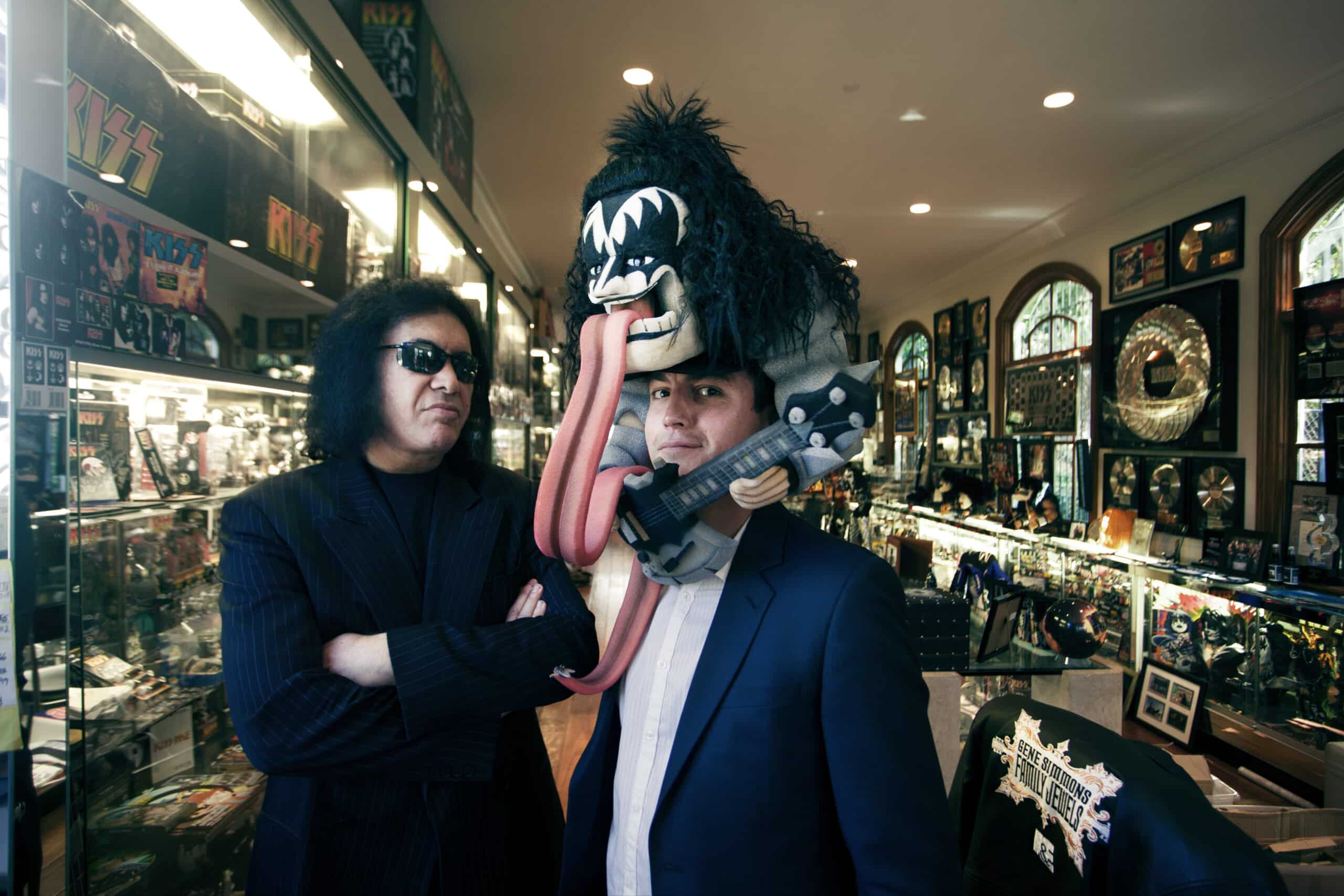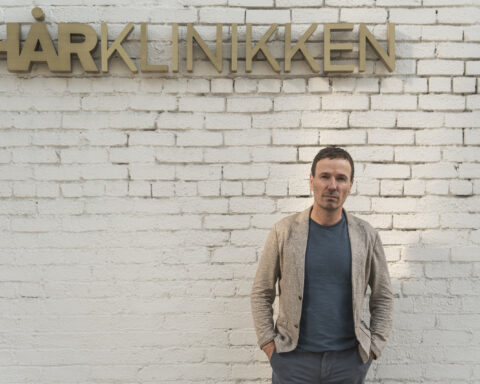Some time in late November, when my wife began the annual festive curtain-raiser of grumbling about me being impossible to buy gifts for, I dropped a few clunky hints that I’d quite like a guitar.
“I don’t want anything fancy,” I said. “Something cheap and basic. Just to try it.” I hoped for a gift wrapped in minimal pressure and expectation. Being honest with myself, and my wife, there was a decent chance it could soon join the telescope, bread maker, and other thoughtfully chosen but underused presents now tucked away in a cupboard gathering dust and guilt.
They say you should never meet your heroes, and I think similar concerns were at the root of my three decades of hesitation about getting acquainted with this instrument that has been so influential in my life. Music has been one of my biggest sources of joy for as long as I can remember. I have been obsessed with rock and roll in particular since about age 12, and it played a huge role in shaping my identity, for better and worse. I would go on to work as a music journalist in my 20s but — with the exception of struggling through a few guitar lessons in my early teens — I have never played one of these instruments that I worshiped from afar. Now, in my early 40s, I was finally ready to try again.
So Christmas morning arrives, and I’m handed a beautiful beginners’ guitar. And for the following three weeks, I have played it every single day, sometimes for most of the day, blisters bubbling under the skin of my fingers as I taught myself some basic chords, then riffs, then tunes. I have learned crude, rudimentary versions of some of my very favorite songs by Johnny Cash, Elvis Presley, The Beatles, and more. And the immense, goosebump-inducing pleasure I have experienced hacking my way through barely recognizable renditions of songs that are widely loved, but also deeply personal to me, has inspired me to explore why I am enjoying so much, why I left it so long, and what I can learn to ensure my own two kids — seven-year-old twins — embrace hobbies that make them happy.
Journalist Tom Vanderbilt spent a year of his 40s learning various new pursuits — how to sing, draw, juggle, and surf — for his 2021 book ‘Beginners: The Joy and Transformative Power of Lifelong Learning‘, which combines his personal experiences with studying the science of acquiring new skills. He believes the “cult of perfection” is preventing many people — including children — from pursuing hobbies that could provide them with great joy. “My daughter, who is 13, tried taking up soccer recently,” Tom tells me. “It’s a massive obsession for people, and there’s such an emphasis on being great, with all these camps and intense training. She was okay, but was lamenting how there was not a recreational group where you could just go and have fun. We shouldn’t put performance in the way of pleasure. As [writer and philosopher] GK Chesterton famously said, ‘Anything worth doing is worth doing badly.'”
Before I spoke to Tom this week, in fact before the sun had set on Christmas Day, family and friends had inadvertently helped me identify a significant difference between picking up the guitar now and my brief, ill-fated efforts as a teen. Soon after I strummed my first iffy-sounding chord, they were asking, “Will you still remember us when you’re a rich and famous rock star?” and various other quips along those lines. All good-natured silliness, but it occurred to me that when I first learnt the guitar, that would have actually been my aim. This time round, I have absolutely no expectation that I am ever going to be any good; I may never even manage a decent barre chord, and I am very happy with that. Throughout our lives, we instantly put pressure on learning by adding ambitious goals — and setting targets, of course, is often the route to success. But this time round, the only goals I have are just small incremental steps forward — learning the next chord, the next song — and that feels good. Tom adds, “Try to go into it with a beginner’s mind. This low-key approach that you’re only there to give it a go, there’s nothing that important resting on it. People get hung up on the idea that they are searching for their passion, but that can be dangerous as it adds too much pressure. Let that passion develop a little more organically.”
I think the main reason that I didn’t stick with learning the guitar in my teens is that I didn’t get good enough fast enough. I looked to some of my peers who were already accomplished musicians, and felt I would never reach that standard, so I quit after a few months. And I put that down to them having more natural talent, rather than the fact they had put in many more hours of practice. Tom believes this is another mindset we should reconsider. He says, “Music does have this aura about it, with people thinking they don’t have the ‘natural talent’ to sing, or play guitar. But people don’t say that in relation to other skills that take a lot of repetitive practice. They don’t say, ‘He was born to be a surgeon.'” The truth is, most of us can become proficient at pretty much anything if we devote enough time, and have the right resources and attitude.
As a journalist, I am learning about — but not mastering — new topics all the time, which helps me engage in a broad scope of conversations with all sorts of people. It’s probably the best thing about the job. But actually learning the hands-on process of a craft opens new avenues of thought and discussion. In a few weeks I have learned — but certainly not mastered — some elements of musicianship that would have benefited me during my time as a music journalist. “The experience I had trying to learn these new things, even to a basic level, was it gave me these new ways to interact with the world,” agrees Tom. “If you learn to draw or paint, for example, it gives you a new relationship with the consumption of art, and makes it less passive.”
Tom also points out an obvious, but extremely significant, difference between when I was learning the guitar as a teenager and now — the rise of YouTube. Almost 30 years ago, I relied on one textbook and one teacher to show me what I needed to learn. Now, I can type the name of a favorite song into a search engine and am greeted with an array of wonderful tutors showing me how to play it. “I find YouTube to be such an amazing resource,” says Tom. “Humans are wired to learn through visual mimicry. There are so many things that are so hard to do through being told instructions. But if you can see how it’s done, it emboldens you.”
To learn more about the science of life-long learning I spoke to Rachel Wu, an associate professor of psychology at University of California, Riverside. Rachel discovered the benefits of acquiring new skills as an adult as she worked on her dissertation exploring how babies choose what to learn. “I was getting a bit bored of my dissertation, so I decided to learn how to draw and paint,” she explains. “I’ve always wanted to learn, but have been terrible at it. So I wanted to see if I could do it.” Despite some mentors telling her to focus on her dissertation, Rachel dedicated three hours a week to this new pursuit, and it ended up benefiting her academic work too. As well as helping to keep her creative juices flowing, she now includes some of her own drawings to demonstrate her findings within her scientific research.
Rachel now makes sure she picks up a new skill from scratch every couple of years, the latest being learning German. She says our brains remain malleable throughout our lives, maintaining “neuroplasticity” which allows it to constantly rewire itself to respond to new challenges. “Learning the guitar is going to be huge for your brain,” she tells me. “Because you building new connections and capitalizing on existing ones too.” It is often claimed that children find it much easier to learn new things than adults. And while that is true to some extent, Rachel believes that is more due to environmental factors than biological differences. Because while children’s lives are built around creating opportunities for them to learn, adults have other commitments and pressures that can get in the way. Rachel explains, “I don’t doubt there are biological differences, but if you mimic the environment kids have, you can go way further learning stuff as an adult.”
I actually think I’m at a great age for learning new things, and that our 40s could be life’s best decade. We are still, hopefully, just halfway through our time. But the constant jostling to find our place in the world has settled at last, leaving us a little more comfortable in our skin. And after spending many years pretending I know more than I do, I now realize that embracing how much I have to learn is endlessly more rewarding.
And it is my children that I think will help me stick with my new hobby a little longer this time. Despite knowing, and frequently writing about, the importance of self-care, I still find there is a sense of guilt that accompanies the self-indulgence of spending time on something that is purely for my own pleasure. But I know I am setting a good example to my kids by embracing learning, and that’s given it added purpose. “As a dad of twins, you have two pairs of eyes looking at you, seeing if learning is the way to go,” says Rachel. “So you are modeling for them, as they are looking up to you to see if they should bother with learning at all. And even when they get to your age, you would have modeled to them that they are not too old to learn.”
Sure enough, a tiny toddlers’ guitar that I bought for my kids a few Christmasses ago has now had the dust blown off and both my twins, without any overt prompting, have shown an interest in learning alongside me. And playing a scrappy version of ‘Let It Be’ — minus one chord which I haven’t yet learnt — with my daughter singing, and my son playing some makeshift drums on the table, brought tears to my eyes. I hope this is the start of many years of playing music together — badly, of course.











